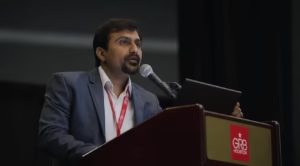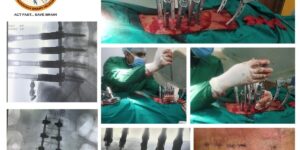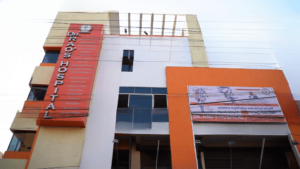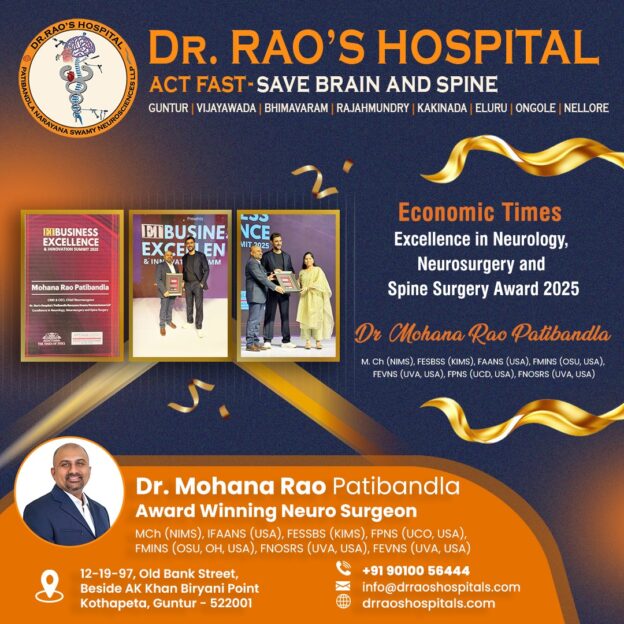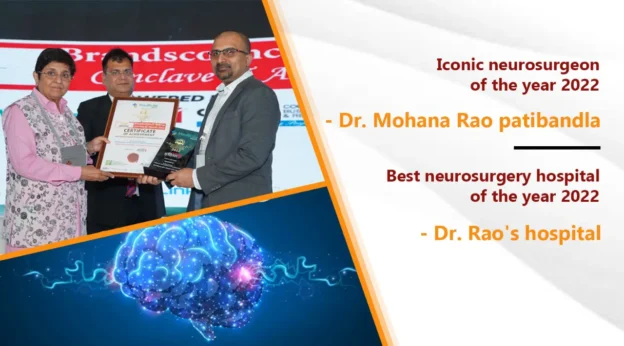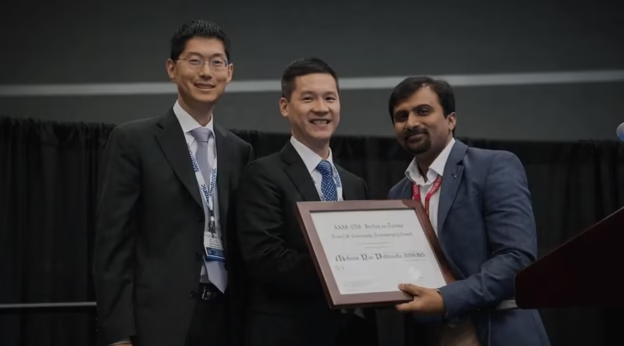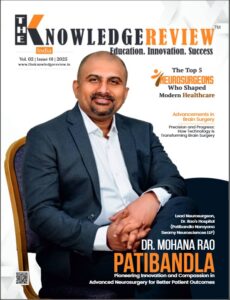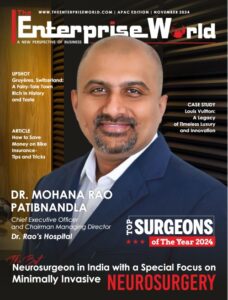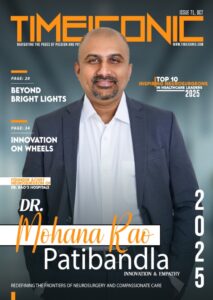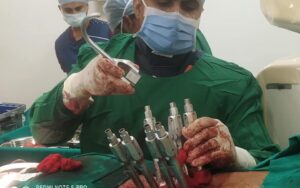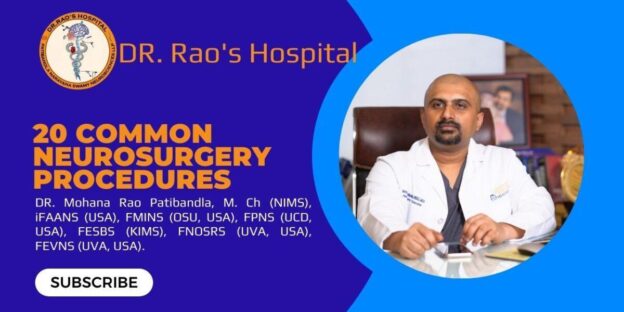World-Class Advanced Neurosurgery Now Available in Guntur
How Dr. Mohana Rao Patibandla and Dr. Rao’s Hospital are redefining access, excellence, and empathy in brain and spine care.
Introduction: The Cost of Distance in the Journey to Healing
For generations, patients in smaller cities and towns across India have faced a heartbreaking dilemma: when a complex neurological or spine condition strikes, where do you go for the best treatment? For many, the answer has long been a hospital hundreds or even thousands of kilometers away — often in Chennai, Hyderabad, Delhi, or Mumbai.
This journey, both physical and emotional, has been more than a matter of distance. It has been a test of faith, finances, and endurance. Families uprooted for months, savings exhausted, and patients made to feel like outsiders in cities where world-class care is concentrated.
But what if the very same level of advanced neurosurgical care — the technology, the precision, the expertise — could be available right where you live?
What if “going to the best” didn’t mean “leaving home”?
That vision — to make world-class neurosurgery accessible without migration — is now a reality in Guntur, Andhra Pradesh, thanks to Dr. Mohana Rao Patibandla, one of India’s most respected and internationally trained neurosurgeons, and his brainchild, Dr. Rao’s Hospital.
The Problem: Centralized Healthcare and the Rural–Urban Divide
India’s healthcare excellence has always been world-class — but unevenly distributed. While major metros house globally recognized institutes for brain and spine surgery, millions of people in Tier 2 and Tier 3 cities have had to travel far for complex treatments like aneurysm repair, tumor resections, epilepsy surgery, or minimally invasive spine procedures.
This concentration of medical expertise in urban centers has led to:
-
Delayed diagnoses and interventions
-
Increased financial burden from travel, accommodation, and logistics
-
Psychological distress for patients and families during prolonged treatments
-
Loss of community and emotional support at a time when it’s needed most
For many families, this “medical migration” becomes a trauma of its own.
Dr. Mohana Rao Patibandla recognized this imbalance early in his career — and decided to change it forever.
The Visionary Who Brought the World to Guntur
After years of specialized training in the United States — including Fellowships in Minimally Invasive Skull Base Surgery (Ohio), Pediatric Neurosurgery (Colorado & Ohio), Functional and Stereotactic Radiosurgery, Neuro-oncology, and Endovascular Neurosurgery (Virginia) — Dr. Rao returned to his hometown of Guntur with a mission:
“World-class care should never depend on your postal code.”
This belief became the foundation for Dr. Rao’s Hospital, established in 2019 under Patibandla Narayana Swamy Neurosciences LLP — Andhra Pradesh’s first independent, state-of-the-art super-specialty hospital dedicated entirely to brain, spine, and nerve care.
Today, Dr. Rao’s Hospital stands as a beacon of hope not only for Guntur but for all of South India — a place where global neurosurgical standards meet homegrown compassion.
The Facility: Innovation Rooted in Accessibility
Dr. Rao’s Hospital isn’t a typical regional hospital. It’s a complete neuroscience ecosystem, equipped with technologies usually found only in premier institutes abroad.
Cutting-Edge Technology
-
3D Neuronavigation Systems – for millimeter-level precision in brain and spine surgeries
-
Intraoperative Neurophysiological Monitoring (IONM) – ensuring safety of brain and spinal cord function during complex procedures
-
Endoscopic & Minimally Invasive Surgical Suites – for smaller incisions, faster recovery, and minimal scarring
-
Hybrid Cath Labs – for advanced endovascular procedures like aneurysm coiling and AVM embolization
-
Stereotactic Radiosurgery Units – for non-invasive treatment of tumors and functional brain disorders
These are not luxuries — they are life-saving essentials. And by bringing them to Guntur, Dr. Rao has eliminated the need for patients to travel to metropolitan cities for specialized care.
The Expertise: A Surgeon Who Bridges Continents
What makes Dr. Mohana Rao’s journey remarkable is his combination of international expertise and local dedication.
With over 15,000 neurosurgical procedures, including:
-
12,000+ minimally invasive surgeries
-
3,000+ endovascular and cerebrovascular interventions
-
2,000+ stereotactic radiosurgeries
-
1,000+ IONM-guided surgeries
…Dr. Rao brings not just experience, but an artistry that transforms every surgery into a mission to restore life and dignity.
His repertoire includes:
-
470+ Endoscopic Pituitary Surgeries
-
400+ Aneurysm Repairs
-
300+ CP Angle Tumor Resections
-
1,000+ Endoscopic Spine Procedures
Patients who once had to travel to Hyderabad, Chennai, or Delhi for such complex procedures now find the same level of expertise just a short drive away in Guntur.
The Philosophy: Healing Beyond Technology
Dr. Rao often says:
“Technology saves lives, but compassion heals them.”
This philosophy defines every aspect of his hospital. While the infrastructure rivals the world’s best centers, what truly sets Dr. Rao’s Hospital apart is its ethos of empathy.
Every patient, regardless of background, receives personalized attention — from diagnosis to recovery. The hospital’s design itself fosters comfort and calm, blending cutting-edge equipment with a healing environment.
Patients describe their experience not as a hospital visit, but as being part of a family that genuinely cares.
Why Leaving Home Shouldn’t Be a Prerequisite for Healing
There’s a psychological component to recovery that’s often overlooked in medicine: familiarity fosters healing.
Being treated near home means:
-
Family support is consistent and accessible.
-
Recovery environments are emotionally safer.
-
Financial burdens are drastically reduced.
-
Continuity of care is stronger through follow-ups and rehabilitation.
When patients receive high-quality neurosurgical treatment in their own city, they are not just surviving — they are truly living through the process of healing with dignity.
Dr. Rao’s mission is built on this understanding: that every patient deserves to heal without leaving behind their community, culture, or comfort zone.
Transforming Guntur into a Hub of Neurosurgical Excellence
Under Dr. Rao’s leadership, Guntur has evolved from a regional medical stopover into a destination for advanced neurosurgery.
Today, patients travel to Guntur — from across Andhra Pradesh, Telangana, Karnataka, and even overseas — for complex neurosurgical, spinal, and vascular interventions.
Dr. Rao’s Hospital is now recognized for:
-
Comprehensive Neurosurgical Care — from trauma to tumors, epilepsy to endovascular cases
-
Exceptional Patient Outcomes — matching international standards
-
Affordable Global Care — eliminating the need for costly medical tourism abroad
In essence, Guntur has become a center of healing and innovation, proving that geography is no longer a barrier to excellence.
Beyond the Operating Room: Leadership and Legacy
Dr. Mohana Rao Patibandla’s role extends far beyond surgery. He is a teacher, mentor, and visionary leader.
As an invited speaker at global conferences like MISSABCON, NESICON, SkullBaseCon, SNVICON, and AP MISSAB, and as a TEDx speaker for his talk “My Journey to Bring Healing Home – A Neurosurgeon’s Quest in Guntur,” Dr. Rao continues to inspire the next generation of medical professionals.
His TEDx message resonates deeply:
“My journey was never about building a hospital — it was about bringing healing home.”
He is also the recipient of multiple honors, including:
-
Dr. A.P.J. Abdul Kalam Inspiration Award 2025 for Best Minimally Invasive Neurosurgeon
-
Economic Times Business & Health Excellence Awards 2025
-
Sardar Vallabhbhai Patel Unity Award 2025
-
Asia’s Most Trusted Neurosurgeon (2023)
-
Health Icon of the Year (2021)
With over 70 international publications and 1,200+ citations, Dr. Rao’s academic and clinical contributions continue to influence neurosurgery globally.
A Hospital Built on Hope
Every corner of Dr. Rao’s Hospital tells a story — stories of families who once feared the worst and found hope in the heart of Guntur.
From children born with congenital neurological disorders to adults recovering from aneurysms, brain tumors, or spinal injuries, thousands of patients have discovered that you don’t have to leave home to find world-class care.
Each successful surgery, each grateful smile, stands as proof of Dr. Rao’s belief that healing is not just a science — it’s a service.
The Future: Expanding Horizons, Empowering Communities
Dr. Rao envisions a future where India leads the world in accessible, affordable, and advanced neurosurgery.
His next phase involves the establishment of the Dr. Rao Institute of Neurosciences, a center for AI-driven research, robotic surgery, and global collaboration — right here in Guntur.
This institute aims to:
-
Train the next generation of neurosurgeons
-
Develop indigenous neuro-navigation technologies
-
Make complex surgical care more affordable across India
In Dr. Rao’s words:
“True innovation isn’t about building bigger hospitals — it’s about building better systems of care.”
Conclusion: The Power of Bringing Healing Home
When patients no longer have to cross cities or countries to receive world-class treatment, healthcare achieves its truest form of equality.
Through Dr. Rao’s Hospital, Dr. Mohana Rao Patibandla has proved that excellence doesn’t belong to metros — it belongs wherever compassion and courage meet.
By transforming Guntur into a global hub for advanced neurosurgery, he has not just changed outcomes; he has changed the geography of hope.
Because healing, after all, should never require leaving home.
About Dr. Rao’s Hospital
Address: 12-19-67, Old Bank Road, Kothapet, Opp. Sravani Hospital, Guntur, Andhra Pradesh
📞 Phone: +91 90100 56444
🌐 Website: www.drraoshospitals.com
📧 Email: info@drraoshospitals.com
Follow Dr. Rao’s Hospital:
YouTube | Facebook | Instagram | LinkedIn | Twitter/X | Google Maps

